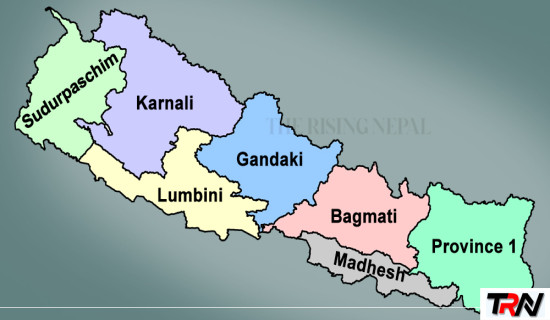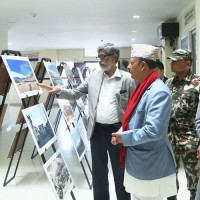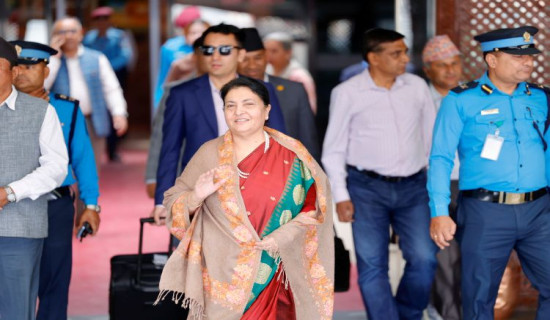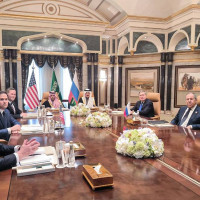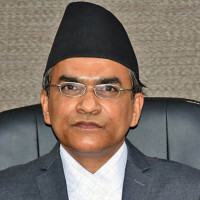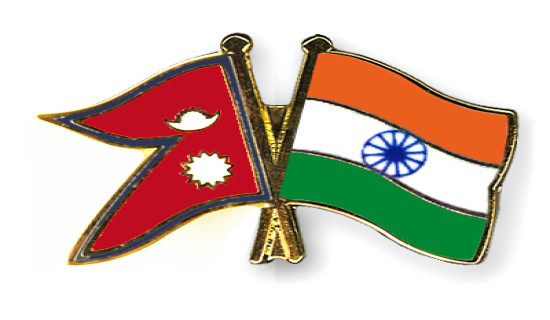- Monday, 2 June 2025
Govt should support film festivals: Filmmaker Puri
BY A STAFF REPORTER,Kathmandu, jun,1: Filmmaker and editor Shiva Puri is now busy running online class for aspiring film editors while giving continuity to two other projects--publication of a book on journalism and a documentary. However, he has not christened his documentary. Likewise, Bhakundo, a movie is another ongoing project.
Puri, sibling of filmmaker Narayan Puri, joined the film industry as an assistant to film editor Karun Thapa, and he concentrated on film editing and filmmaking till 2013.
When he found it difficult to sustain life only by editing and directing feature films, he also started working with local and international non-governmental organisations.
"After finding it difficult to make money by only engaging in film editing and filmmaking, I associated myself with NGOs and INGOs and worked for them, mostly by making documentaries for them," Puri said.
He also said that back in 2013, it was not easy for technicians to survive by only working in cinemas. "But now the situation has changed, technicians could easily live by doing only cinemas, but filmmakers are still struggling to survive by only doing films," he said.
Tulasi is the latest film he edited while Design to Disappear, a documentary based on life Krishna KC, who went missing during the conflict period from the hands of the government force, was his last docudrama.
Born in Khaireni, Tanahun, Puri has over three dozen films to his credit. He worked as editor for Ke Bho Launa Ni, a film by Anish Koirala and Narayan Puri's Mamaghar simultaneously in 2003. Likewise, Shalina, the first feature-length animation Nepali movie, was his last film as the editor.
"I've focused on editing and producing impactful short films and documentaries, continuing to evolve and contribute to the industry," he said.
He is also associated with the Nepal International Film Festival (NIFF). In the edition of NIFF, he was a jury member for the International Federation of Film Societies (IFFS) Don Quixote Awards. In the seventh edition in 2024, he was in the selection committee while coordinating the festival.
Currently, Puri is Vice President of the Nepal Film and Cultural Academy (NFCA), organiser of NIFF, and continued as the lead of the selection committee and festival coordinator for the NIFF-2025 edition which was held in March.
"Organizing an international film festival, particularly one of the scale of the Nepal International Film Festival (NIFF), presents considerable challenges. The festival attracts over 600 films from nearly 100 countries globally, so leading the selection committee entailed navigating various complexities," he said.
However, he lamented that the government had no policy to support such film festivals. Securing financial resources for hosting film festival is the biggest challenge, he said. "Yet, we managed to hold the 8th edition of NIFF successfully, with the participation of 45 international filmmakers and jury members," he added.
According to Puri, film festivals are essential venues for film education, exchanging ideas, and comprehending global filmmaking trends. They provide invaluable opportunities to view and engage with diverse narratives, investigate cinematic techniques, and expand professional networks.
He said the government should develop policies to support film festivals. He is also baffled by the uncertainty of feature films. He said still filmmakers do not know what types of films succeed and what types failed.
When a small budget film like Purna Bahaduko Sarangi becomes a hit, a big budget film like Pitambar flops, he said, referring to the failure of Bishal Chaulagai's Pitambar in the box office.
"I do not know why we have to wait seven months to see another hit film after Purna Bahadur's Sarangi," he said. "Then in September last year there was Purna Bahadur's Sarangi to encourage the local filmmakers and now there is Ukno Sweater."



